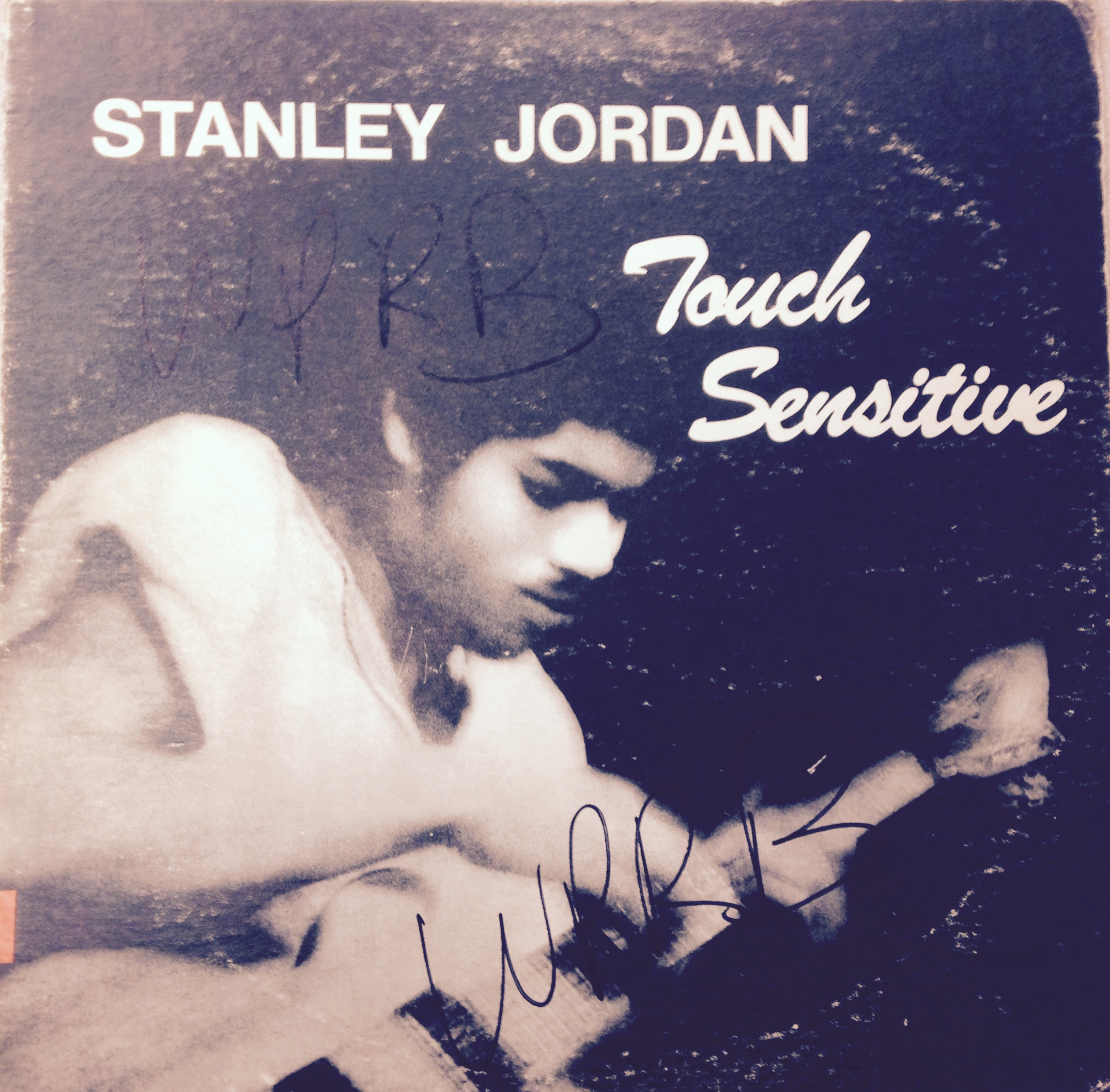Stanley Jordan, and the Battle Against “Your Music”

By Kenneth McCarthy ’81
I first got involved with PRB in the spring of my freshman year (1978). It was an interesting time for the station. Though there were a lot of talented individuals in areas like engineering and programming, other area like sales, training, and scheduling were a bit shaky to say the least.
As best as I can remember, the station had only one sponsor, the University Store and one ad, the “These Are My Favorite Things” spot. Thank God it was a good spot because we played it twice an hour, every hour. And we didn’t log that many hours. It wasn’t unusual for the station to sign off after Morning Classical at 10 AM due to a lack of DJ’s.
The details of what happened the next year when the new management group took over could fill a book. It was a complex situation. As an organization, PRB had to be rebuilt from scratch. We had very few members and new people had to be attracted, brought in, and trained fast. There was also a major ideological split among the managers. You had one group that wanted the station to have a top 40 sound and another group that wanted the station to be an alternative to what was available on commercial radio.
I was one of the ones who wanted the station to offer an alternative to commercial radio. I believed then and I still believe today that it’s a waste of talent and opportunity for the students of a school like Princeton to put their energies into duplicating what can easily be found all over the dial. They should be taking chances, creating new approaches, bringing something different to the airwaves. Students who plan to go into the media business have a whole lifetime to conform to the realities of the industry. Why start this process prematurely when you have free rent, free power, no payroll to meet, and no owner to please?
The first of our many big battles was over a new slogan for the station. “Stereo 103”, the old slogan, just didn’t cut it any more. The top 40 group wanted PRB to be “your music”, a phrase to be repeated at every opportunity, “and it’s a sunny 75 degrees here at your music…, coming up next on your music…, your music would like to remind you to drive safely this holiday season…” The whole idea of an empty phrase repeated over and over really galled the alternative group and we fought it every step of the way.
Our differences, deeply felt as they were, never got in the way of attracting new people to the station and turning them on to the incomparable fun of doing live radio. We all wanted the station to succeed and the PRB we passed on to the next group of managers had a large staff of well trained DJ’s and a healthy sales department. We even rebuilt the studios. I don’t think it’s an exaggeration to say that if we hadn’t immediately and dramatically reversed the condition of the station there might not be a PRB today. Things had gotten that bad.
Some history for people interested in non-rock music on WPRB:
When l started at PRB, we had classical music from 6:15 AM to 10:15 AM, jazz from 10:15 AM to 12:15 PM, and rock from 12:15 PM on. When the new management came in the next year, had there not been such a dramatic shortage of rock DJ’s and such a solid corps of classical and jazz DJ’s, classical and jazz would have been eliminated from PRB and it would have become an all-rock station. Classical and jazz had to fight to preserve its air time the whole time I was at the station (I left in 1981).
The jazz department did a lot to support the local music scene and was involved in helping to produce on-campus concerts. One of the most successful (April, 1980) featured two soloists, pianist Anthony Davis and guitarist Stanley Jordan ‘8l. This was one of the first opportunities Stanley had to present his music in a concert setting, years before he enjoyed any kind of commercial success. As an undergraduate, Stanley appeared on PRB many times as a guest and a performer. He also spent one summer as a jazz DJ at the station. In 1987, his first album became the best selling jazz record of the year worldwide.
